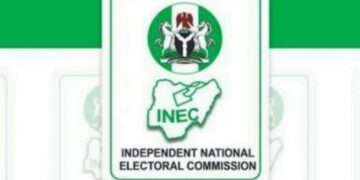President Bola Tinubu’s sweeping dismissal of Mele Kyari as Group Chief Executive Officer of the Nigerian National Petroleum Company Limited (NNPCL) and the complete reconstitution of its board was far from a routine administrative change, Spear News has confirmed. The move was aimed at revitalizing the institution and rebuilding trust in Nigeria’s oil sector.
Behind the scenes, a financial scandal of monumental proportions had been brewing, one that threatened to undermine public trust in Nigeria’s most critical revenue-generating institution. The decisive action followed months of mounting pressure stemming from a damning 2024 audit report that exposed a staggering N514 billion fraud within the state oil company, revealing systemic financial mismanagement and diversion of public funds under Kyari’s leadership.
A statement from the Special Adviser to the President on Media and Strategic Communications, Bayo Onanuga Wednesday said “President Tinubu, invoking the powers granted under Section 59, subsection 2 of the Petroleum Industry Act, 2021, emphasised that the board’s restructuring is crucial for enhancing operational efficiency, restoring investor confidence, boosting local content, driving economic growth, and advancing gas commercialisation and diversification”.
The Office of the Auditor-General of Nigeria’s explosive findings, contained in its 2021 annual report released in late 2024, painted a disturbing picture of financial recklessness at the highest levels of the NNPCL.
The audit uncovered unauthorised deductions totaling N82.9 billion from crude oil and gas sales, allegedly for refinery rehabilitation projects that lacked proper documentation or approval. Even more alarming was the revelation that N484.7 billion from domestic crude sales had been withheld, with N343.6 billion unilaterally deducted to cover vague expenses described as “value shortfalls,” “pipeline losses,” and “strategic stock holding costs” – all without proper justification.
The financial irregularities extended to a suspicious N50 billion shortfall in May 2021 alone, when the NNPCL was supposed to remit N127 billion to the federation account but only paid N77 billion.
These actions constituted clear violations of Section 162(1) of the Nigerian Constitution, which mandates that all federally collected revenues must be paid into the federation account, as well as breaches of the 2009 Financial Regulations that prohibit arbitrary deductions from public funds.
The Auditor-General’s report left no room for ambiguity – the NNPCL’s financial practices under Kyari’s leadership amounted to gross mismanagement of public resources. Despite the gravity of these findings, which were made public in late 2024, President Tinubu appeared to move cautiously, taking months before taking decisive action.
The attorney-general’s office, Spear News gathered, was said to have recommended that the group chief executive officer of the NNPCL explain to the public accounts committees of the National Assembly reasons for the appropriations.
Sources within the presidency suggest this delay reflected Tinubu’s careful consideration of the political and economic implications of a major shake-up in Nigeria’s oil sector, particularly given the NNPCL’s crucial role in government revenue. However, mounting pressure from civil society groups, particularly the Socio-Economic Rights and Accountability Project (SERAP), which had demanded Kyari’s prosecution, eventually forced the president’s hand. The N514 billion scandal had become too large to ignore, especially as the Tinubu administration grappled with the economic fallout from subsidy removal and sought to restore confidence in Nigeria’s financial governance.
Tinubu’s response was characteristically decisive and comprehensive. Rather than simply replacing Kyari, he dissolved the entire NNPCL board and appointed a completely new leadership team, signaling his intention for a clean break from past practices.
The new board brings together respected industry figures including Ahmadu Musa Kida as Chairman, a former Total executive with extensive experience in Nigeria’s oil sector, and Bashir Bayo Ojulari as Group CEO, who recently led a consortium in the landmark $2.4 billion acquisition of Shell’s onshore assets. The board’s composition, which includes six new non-executive directors representing Nigeria’s geopolitical zones, appears designed to restore credibility to the NNPCL’s operations.
The president’s mandate to the new leadership is unambiguous: clean up the NNPCL’s financial practices, restore transparency, and drive operational efficiency. Tinubu has set ambitious targets, including increasing oil production to 2 million barrels per day by 2027 and expanding gas production to 8 billion cubic feet daily, with refining capacity expected to reach 500,000 barrels by 2030. These goals, while technically achievable, will require a fundamental transformation in how the NNPCL conducts its business and manages public funds.








































Discussion about this post